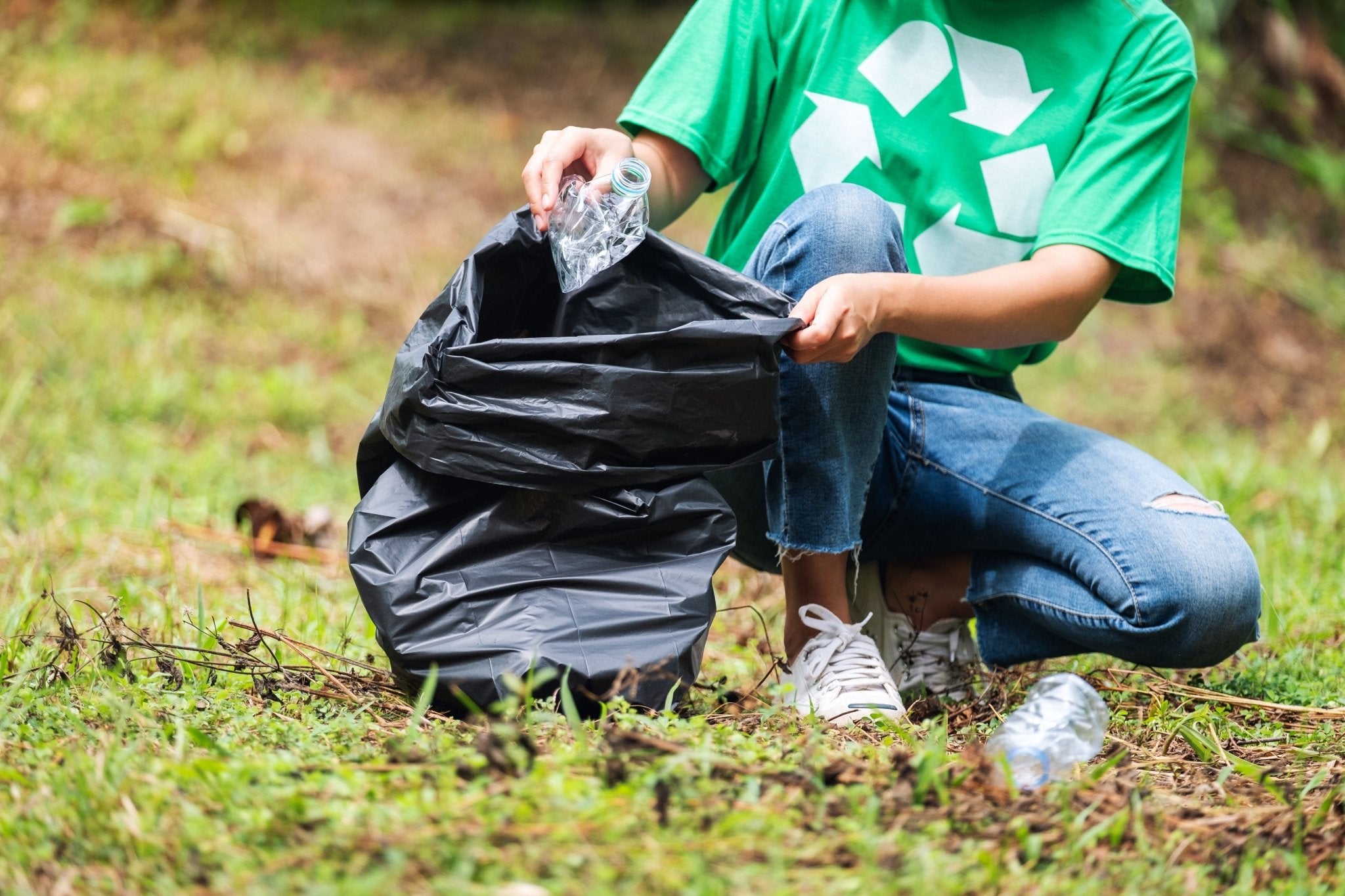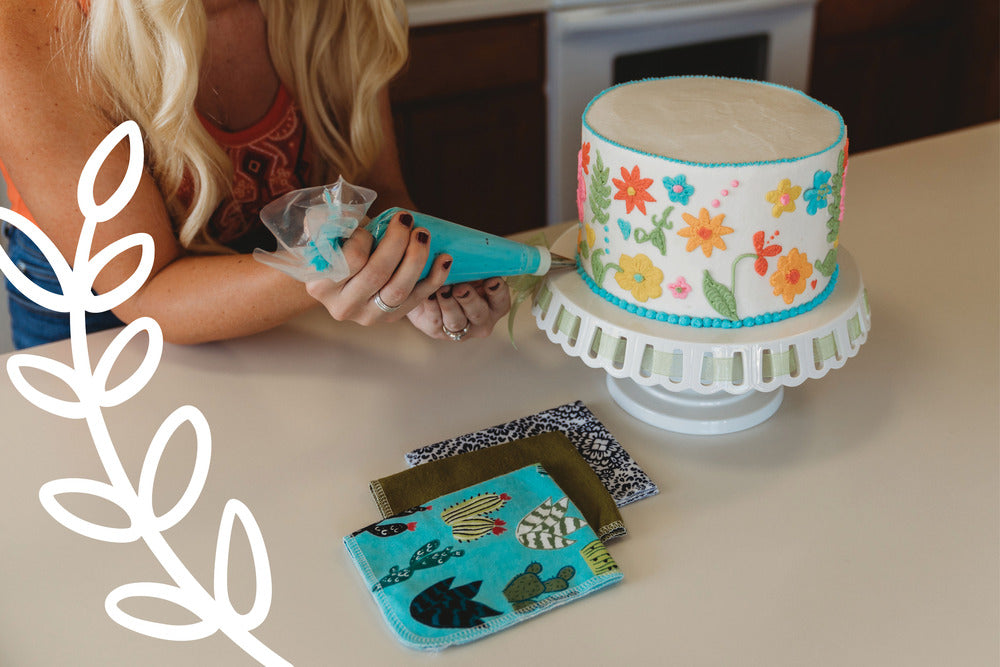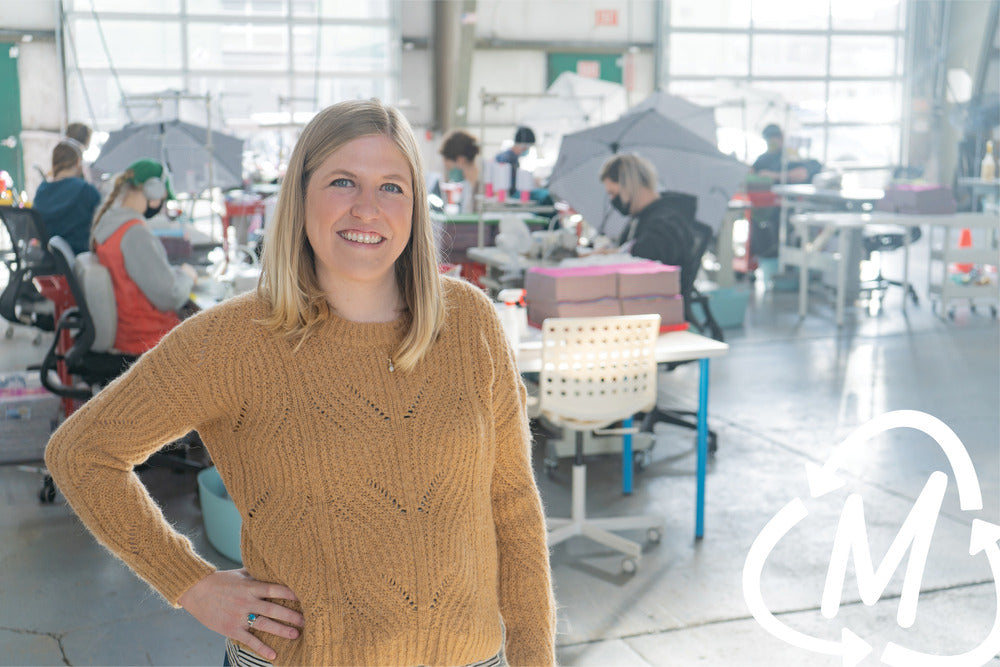In a world driven by fast paced consumerism, it’s no surprise that we have a major plastic pollution problem. Plastics from packaging, single use containers, and drinking straws end up in our waterways, causing harm to wildlife and their habitats. But it’s Plastic Free July, a chance to slow down and take the time to consider how much plastic we are consuming day to day, and what alternatives we can find to reduce that number. So, we are going to explore plastic and the three R’s of sustainable living: Reduce, Reuse, Recycle.
Plastic in and of itself is not a bad thing. Admittedly, it is convenient, lightweight, and is not very expensive. We’re even making life saving medical devices with it! Ultimately, it makes sense how we ended up where we did in our relationship with plastic. But, we were not careful with overproduction and proper disposal practices. Littering, urban runoff, poor waste disposal management, illegal dumping and more all contributed to negative environmental impacts. It's time to evaluate the future of our use of plastic, and what we can do to improve.
One way we can begin to make ecological reparations is by reducing the amount of plastics we purchase and use. Unfortunately, not all types of plastic are recyclable, and a very small percentage of plastics actually makes it into the recycling bin to begin with. Avoiding single use plastics like shopping bags and drinking straws is much easier when you come prepared with your own alternatives. For example, bring your own tote to the grocery store to avoid single use plastic bags, or bring your own reusable straw and reusable utensils so you can skip plastics when on the go. Carry a refillable water bottle with you so you won’t need to reach for a single use bottle. Try Bowl Covers instead of plastic wrap, and buy dry goods in bulk to reduce plastic packaging. Opt for glass packaging when possible, since it is 100% recyclable, and produced from bioavailable materials like sand and limestone. There’s endless ways to kick some plastic to the curb. “Reducing” is all about assessing the amount of waste you create and making an effort to minimize it in whatever ways you can. It’s important to acknowledge that that process will look different person to person, too.
It is often said that the best way to be sustainable is to use what you already have. If you already have plastic, then use it to its fullest! Take a quick look around. What plastics do you have that were meant to be single use, but can actually be repurposed? Don’t be so quick to toss out plastic to-go containers from restaurants; wash and reuse them for later use. Look for a local refill shop or bulk bar to refill those plastic shampoo and conditioner bottles already living in your shower. If you have a stock pile of plastic utensils from restaurants, hand wash them and keep them around for picnics. Reuse pill bottles as a bobby pin container when traveling. When you have reused your plastic item as much as possible, try to recycle it so it can be repurposed.
Recycling plastics requires a little bit of research on the process and requirements based on your geographical location. Luckily, most towns and cities have some sort of recycling program, or sometimes grocery stores and refill stores will take recyclable materials. Always rinse your plastic before putting it in a recycling bin, to ensure it has a chance of being recycled. “Dirty” materials will often be pulled from recycling facilities and put back into the landfill or incinerator as it can be too costly or time consuming to separate and clean individual plastics. It is important to keep your recycling free from food and liquid. Learn more about what can be recycled, and even download a recycling guide from Waste Management here. There are as many as seven different types of plastic, and not all of them can be recycled. Check with your local recycling facility to see what they accept and their specific rules on recycling. Learn more about the different types of plastic and their recyclability here.
Many people value recycling the right way so that less ends up in landfills. However, disposing of medical supplies and equipment as well as expired or unused medications requires caution, and many are unsure how to do so. In an effort to help, NCOA Adviser created this guide, How to Manage Unused Medical Supplies, that addresses how to handle these meds and supplies without letting them go to waste, including:
- Participating in drug take back programs in-person or over the mail
- Donating or returning major equipment like wheelchairs and mobility aids
- Organizations that take donations of supplies like gloves and masks
These three “R’s” aren’t just limited to plastic either! Learning to do basic clothing repairs is another way to reuse items you already have. Turn jeans into shorts, or a long sleeve button down into a blouse. Opting for emails instead of traditional mail reduces paper waste, and composting repurposes scraps into fresh soil. Thrifting, second hand swaps, or borrowing items from a neighbor is a sustainable way to reduce emissions, packaging waste, and save some money, too! Plastic is simply a great place to start since it is so prevalent and alternatives are easily accessible.
Change is possible, it just takes a little bit of research and willingness. No matter who you are or where you are in life, learning to reduce, reuse, and recycle is a process, and no one gets it right all of the time! But it will make a bigger difference if a lot of people are practicing sustainability a little imperfectly, more than if just a few people are doing it flawlessly. Rebuilding our ecosystems and reducing pollution is a collective effort, and by doing even one of these three “R’s” you will be making an impact on the future health of our planet. How else are you participating in Plastic Free July? In what ways do you make an effort to care for the environment? Reach out and let us know! We’d love to talk.



